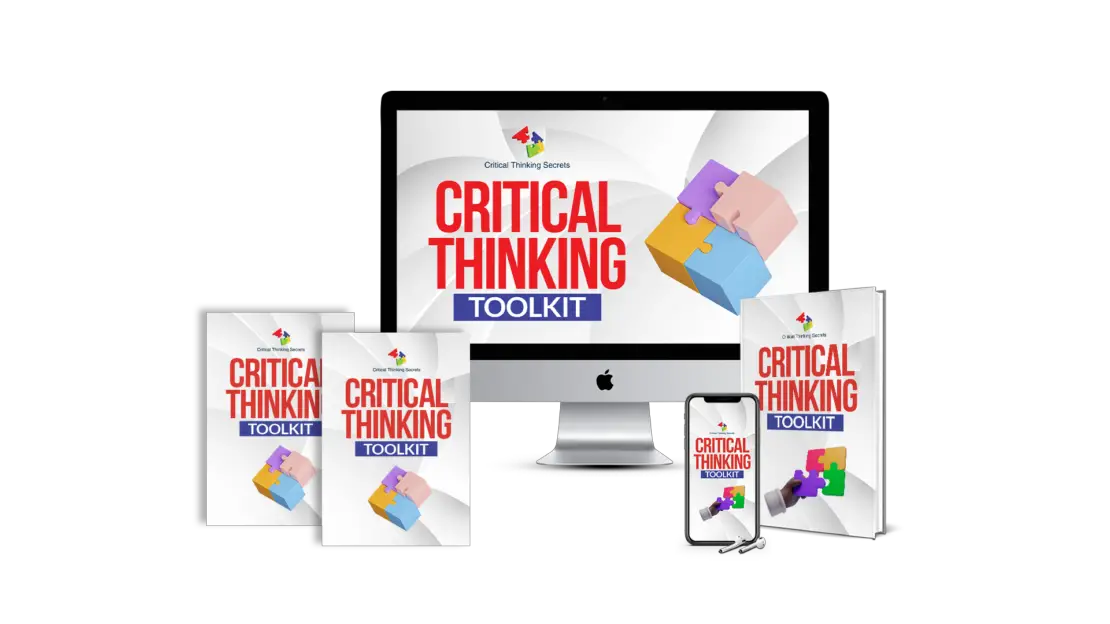Critical Thinking Vs Analytical Thinking Critical Thinking Secrets

Critical Thinking Vs Analytical Thinking Critical Thinking Secrets This article covers the difference between critical thinking vs analytical thinking. when and how you should use critical and analytical thinking. Critical thinking and analytical thinking are two crucial cognitive skills often used interchangeably, but there are subtle differences between the two. analytical thinking involves breaking down complex information into smaller, more manageable parts to understand how they relate.

Critical Thinking Vs Analytical Thinking Critical Thinking Secrets Two key thinking styles – analytical thinking and critical thinking – can help you solve problems systematically. in this comprehensive guide, we’ll explore the difference between analytical and critical thinking, how to develop both skills, and why you need them to make informed choices. Although both critical thinking and analytical thinking involve thoughtful examination, they differ significantly in how they approach problems, analyse information, and guide decision making. understanding these distinctions can help clarify when to use each style for more effective problem solving and decision making:. Here are some differences between analytical thinking and critical thinking: both thinking styles examine facts to help them evaluate information but depend on them differently. those applying analytical thinking to a situation use facts to support evidence. Understanding the distinctions between analytical skills and critical thinking is crucial for enhancing your problem solving abilities. this blog delves into definitions, techniques, strategies, and applications in decision making processes, offering insights on how to effectively leverage both in professional settings.

Critical Thinking Vs Analytical Thinking Critical Thinking Secrets Here are some differences between analytical thinking and critical thinking: both thinking styles examine facts to help them evaluate information but depend on them differently. those applying analytical thinking to a situation use facts to support evidence. Understanding the distinctions between analytical skills and critical thinking is crucial for enhancing your problem solving abilities. this blog delves into definitions, techniques, strategies, and applications in decision making processes, offering insights on how to effectively leverage both in professional settings. When navigating life’s complexities, people often find themselves questioning, “what’s the difference between critical thinking vs analytical thinking? 🤔 both skills are essential in today’s fast paced world, but they serve unique purposes in problem solving and decision making. Analytical thinking is about structure. it’s the process of breaking things down into parts, looking at how they work, seeing what patterns emerge. when you’re analyzing something, you’re studying its components—dissecting a system, diagnosing a problem, decoding how all the pieces fit. While both skills are essential for problem solving, critical thinking is more evaluative, whereas analytical thinking is predominantly about deconstructing and examining information. critical thinking involves evaluating information and arguments, assessing credibility, and making reasoned judgments. Two key skills are analytical thinking and critical thinking. these are often used interchangeably but are different. analytical thinking breaks down complex data into smaller parts for analysis. critical thinking focuses on making judgments based on logical analysis.

Critical Thinking Vs Analytical Thinking Critical Thinking Secrets When navigating life’s complexities, people often find themselves questioning, “what’s the difference between critical thinking vs analytical thinking? 🤔 both skills are essential in today’s fast paced world, but they serve unique purposes in problem solving and decision making. Analytical thinking is about structure. it’s the process of breaking things down into parts, looking at how they work, seeing what patterns emerge. when you’re analyzing something, you’re studying its components—dissecting a system, diagnosing a problem, decoding how all the pieces fit. While both skills are essential for problem solving, critical thinking is more evaluative, whereas analytical thinking is predominantly about deconstructing and examining information. critical thinking involves evaluating information and arguments, assessing credibility, and making reasoned judgments. Two key skills are analytical thinking and critical thinking. these are often used interchangeably but are different. analytical thinking breaks down complex data into smaller parts for analysis. critical thinking focuses on making judgments based on logical analysis.

Critical Thinking Vs Analytical Thinking Critical Thinking Secrets While both skills are essential for problem solving, critical thinking is more evaluative, whereas analytical thinking is predominantly about deconstructing and examining information. critical thinking involves evaluating information and arguments, assessing credibility, and making reasoned judgments. Two key skills are analytical thinking and critical thinking. these are often used interchangeably but are different. analytical thinking breaks down complex data into smaller parts for analysis. critical thinking focuses on making judgments based on logical analysis.
Comments are closed.